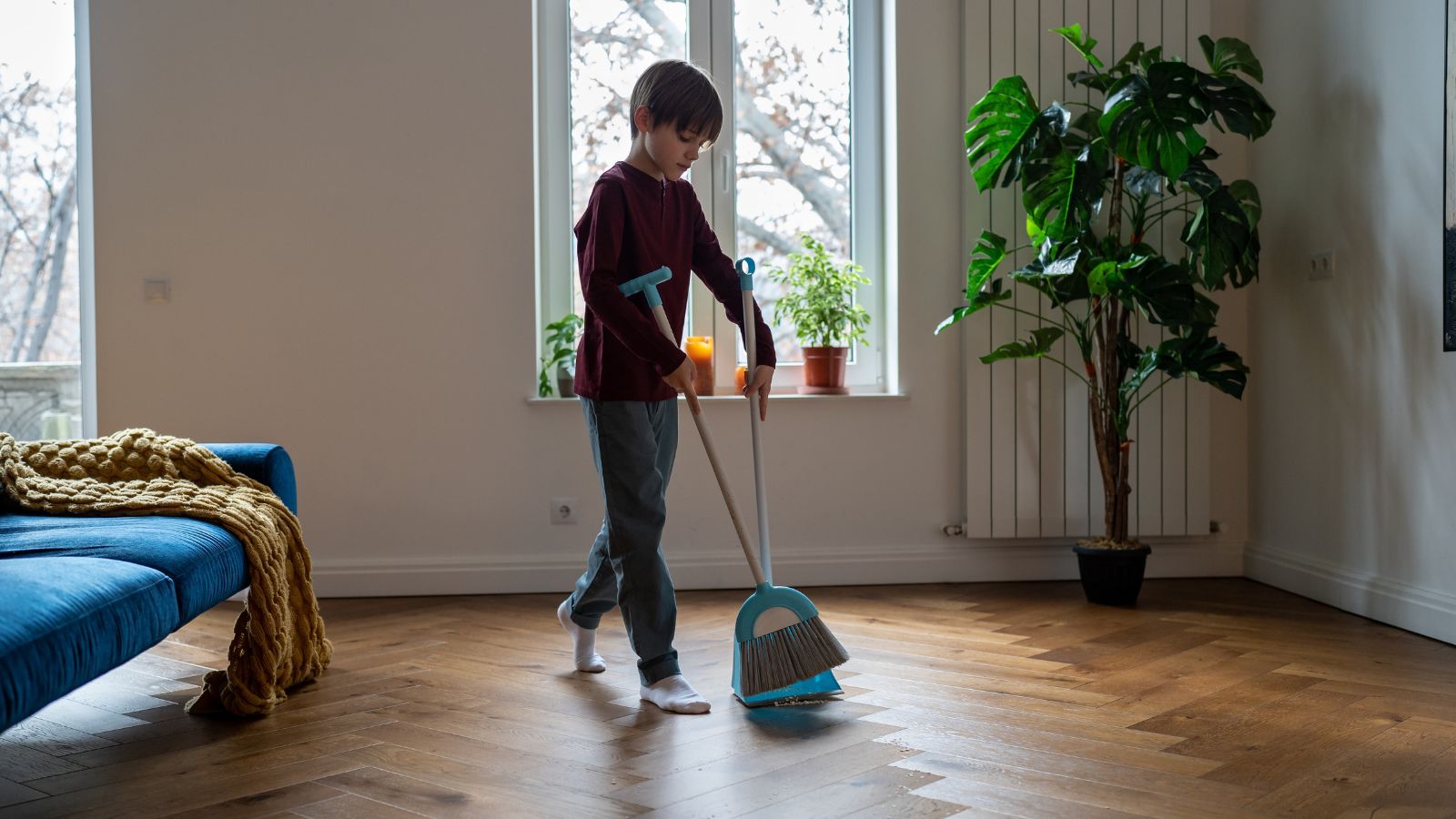Kids in the 1970s lived by very different rules to the youngsters of today. Life was simpler in some ways, but it also came with strict controls on how children behaved, played, and even interacted with their parents. These rules might feel outdated today, but they shaped a generation of young people who learned the importance of respect, responsibility, and resilience. Let’s take a look at 15 of these rules.
Be Home Before the Streetlights Turn On

Kids in the ‘70s could roam the neighborhood all day, but had to be back home before those streetlights flickered on. Freedom came with a time, with no exceptions. This unspoken rule taught kids time management before they even knew the term. Breaking it meant a stern lecture or worse, being grounded.
Finish Everything on Your Plate

Picky eating wasn’t tolerated, and the phrase “there are starving kids in the world” was repeated like a mantra. Dinner wasn’t just a meal; it could be a battleground of wills. Kids were expected to eat every last bite, no matter how much they hated vegetables or if they were already full. It was all about respect for the effort put into making the meal.
Respect Your Elders

Adults were always addressed with titles like Mr, Mrs, or Miss. First names were off-limits and talking back to an adult was considered a serious offense, and a glare from a parent was enough to stop you in your tracks.
The rule wasn’t just about manners, it was about understanding your place and showing deference to authority.
Chores First, Fun Later

There was no escaping chores for kids in the ‘70s. Mowing the lawn, doing dishes, or folding laundry were the kinds of tasks every youngster was expected to do. The rule was simple: no TV, playtime, or hanging out with friends until your chores were done. Ignoring your chores just meant more work later. This rule taught kids early that hard work came before rewards.
Don’t Interrupt Adults

As soon as children were old enough to understand, they were told to “be seen and not heard” when adults were talking. If you needed something, you had to wait for the right moment. Interrupting a conversation was seen as incredibly rude.
It taught kids patience, but it also made many of them masters of silently waiting their turn.
Stay Out of Trouble at School

Bad behavior wasn’t tolerated anywhere. Getting in trouble at school wasn’t just between you and your teacher: it followed you home. If your parents got a call from the principal, you could expect serious consequences. Detention wasn’t the worst part; it was knowing you’d have to face the punishment waiting for you at home.
No Talking During Church

Attending church was non-negotiable for many families in the ‘70s and Sundays were sacred. The number one rule during services was silence. Kids were expected to sit still, stay quiet, and pay attention, even if they didn’t understand half of what was being said. Whispering, fidgeting, or dozing off earned you a stern look or a pinch on the arm.
Answer the Phone Politely

In the days before cellphones there was just one phone in the house and it was plugged into the wall. Answering it was a formal affair. Kids were expected to pick up the receiver and greet the caller politely. Forgetting to say “please” or “thank you” during the conversation was frowned upon, and hanging up without a proper goodbye was unthinkable. It was all part of learning good manners.
Do Your Homework Without Complaints

There was no point whining about homework in the ‘70s. If you brought home an assignment, it was your job to sit down and get it done. There were no excuses, no procrastination, and no negotiating for extra TV time. Asking for help often came with a reminder that learning was your responsibility.
Saturday Morning Chores Came Before Cartoons

Seventies kids loved Saturday mornings, which meant cartoons and sugary cereal, but first there were chores to be done. Most kids had to tackle those household jobs before they could even think about tuning into their favorite shows. Whether it was cleaning their room or helping out with yard work, parents made sure the to-do list came first.
Always Say “Yes Sir” or “Yes Ma’am”

Deference to authority figures was mandatory and kids were expected to respond to adults with a polite “Yes sir” or “Yes ma’am,” no matter the situation. It was drilled into them as a sign of good upbringing and proper etiquette. Forgetting to use these phrases would earn you a lecture on respect.
Walk to School, Rain or Shine

Unless you lived miles away, walking to school was the standard mode of transportation, regardless of the weather. Rain, snow, or blazing heat didn’t matter; you put on a jacket or grabbed an umbrella and dealt with it. It taught kids resilience and independence, though they probably didn’t appreciate it at the time.
You Break It, You Fix It

If you broke something, you were responsible for fixing it or replacing it. It could be a smashed window pane, broken toy or damaged furniture: if you did it there was no blaming someone else or shrugging it off. This rule made kids think twice before horsing around or being careless with their belongings.
No Talking Back

You had to watch your tongue, because talking back to your parents was the quickest way to land yourself in trouble. Even a sarcastic tone or rolling your eyes could be enough to set off a lecture, or worse.
The rule wasn’t just about avoiding arguments, it was about showing respect and understanding that parents had the final say.
Save Your Allowance

An allowance came with strings attached in the ‘70s. Parents expected their kids to save up for the things they wanted, teaching them the value of money at an early age. Splashing it all at once on candy or toys would lead to a stern reminder that patience pays off. It was a crash course in budgeting that would serve them well in later life.
